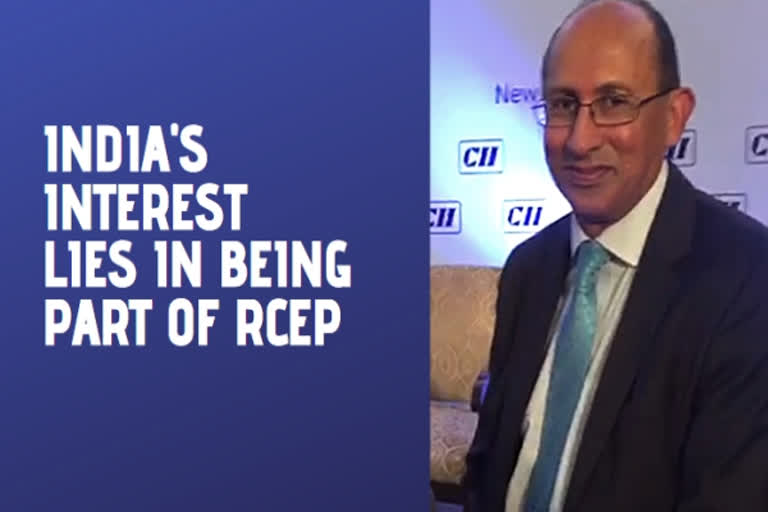New Delhi: It is in the interest of the region as well as India’s own economic interest for New Delhi to sign up for RCEP (Regional Comprehensive Economic Partnership), argued former top Australian diplomat Peter Varghese on Monday. Varghese the former Secretary of DFAT (Department of Foreign Affairs and Trade) and the former High Commissioner to India authored the Australian government commissioned 'India Economy Strategy Paper' that was unveiled a year ago. At a CII-led seminar in New Delhi to discuss the recommendations of the paper, Varghese hoped that India would join RCEP in the near future.
“If you look at the global economic outlook at the moment, and if you look at the pressures that trade liberalisation is encountering, to have an agreement which covers a third of global GDP and about a third of the global population at a time when trade liberalisation is being severely tested is an important step forward. In terms of India’s own economic aspirations and interests, I hope that at some point the judgment would be that being in is better than being out. So we remain hopeful that at some point in the not too distant future we can see India inside RCEP,” emphasised Varghese.
Asked about India’s ongoing review of bilateral FTAs (Free Trade Agreements) with several countries and the arguments against it, Varghese said that India and Australia have different ambitions when it comes to negotiations on trade liberalisations. He added that India has had a mixed experience and its level of ambition on FTA negotiations have been lower. Whereas the central premise in Australia is predisposed to FTAs being a useful tool for the economy.
After long-drawn negotiations with 10 member countries of the Association of Southeast Asian Nations (ASEAN) and the bloc's dialogue partners including China, Japan, South Korea, Australia, and New Zealand, India pulled out of the proposed RCEP agreement during the ASEAN summit held in Bangkok.
“Today, when we look around we see during seven years of RCEP negotiations, many things, including the global economic and trade scenarios, have changed. We cannot overlook these changes. The present form of the RCEP Agreement does not fully reflect the basic spirit and the agreed guiding principles of RCEP. It also does not address satisfactorily India's outstanding issues and concerns. In such a situation, it is not possible for India to join the RCEP Agreement," said PM Modi in his speech in Thailand announcing a decision to pull out.
Also read:Our 'forceful opposition' saved country from RCEP: Congress
Asked if quitting RCEP will make it harder for India to offer concessions for ongoing negotiations on FTAs with US and EU, P Harish, Additional Secretary (Economic Division and States ) in the Ministry of External Affairs said that India had trade deficits to its disadvantage with all the 15 members who have agreed to RCEP. While India has a trade surplus with the US and EU, he remarked.
The 'India Economy Strategy Paper' is a blueprint to transform the trade, commerce and investment partnership between Australia and India majorly by 2035. Varghese batted for Australia to put more of its export eggs into the Indian market given its different demography.
Also read:Will love to see India in RCEP final agreement: NZ minister
Meanwhile, Harish assured that while there is a cyclical and structural economic slowdown, the Indian government is addressing the concerns sector-wise with a recent focus on automobiles to real estate. The panellists underlined the need to have direct air connectivity between India and Australia to boost tourism and business. Energy, renewables, FinTech, Animation gaming, Banking solutions, Medical technology, Gems and Jewellery have been identified among the key sectors to boost the bilateral economic relationship.
Senior Journalist Smita Sharma spoke to former Australian Foreign Secretary Peter Varghese about India’s pullout from RCEP. Here’s the exclusive conversation.
Q. What significant progress has been made on the India Economy Strategy report?
